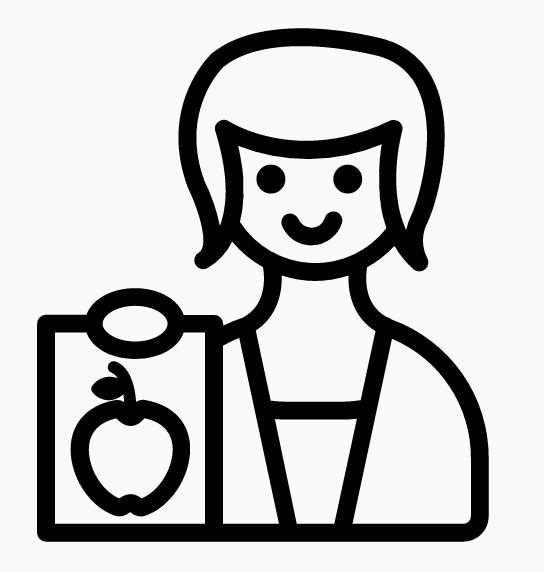Did you know you can prevent, treat and manage most common diseases and conditions with proper nutrition? Many people wait until they’re sick to visit a doctor, who will often prescribe medication, tests, surgeries or other costly treatments.
Working with a registered dietitian (not a certified nutritionist), you can manage your family’s health much better than you can by waiting for medical help after you’re sick.

Health Problems you Can Avoid or Fix
While some diseases and conditions are largely genetic, many stem from poor diet, lack of exercise and poor lifestyle habits like smoking, drinking, substance abuse and lack of sleep. Common ailments you can avoid, manage, reduce or even cure with a combination of diet therapy and improved lifestyle habits include:
- Heart disease
- Stroke
- Osteoporosis (bone health)
- Obesity
- Alzheimer’s
- Diabetes
- Pre-diabetes
- Lower back problems
- High blood pressure
- Hypertension
- Celiac disease
- Allergies
- Eating disorders
Registered Dietitian vs. Certified Nutritionist
If your personal trainer tells you her or she is a certified nutritionist, that’s not the same as being a registered dietitian. An RD completes a college degree, then becomes board certified. He or she also specializes in different areas, such as becoming a sports nutrition expert or a Certified Diabetes Educator.
Nutritionists often take only a weekend seminar, online course or other non-accredited course of study. They are generally not allowed, by state law, to prescribe any nutrition-based therapies.
A new designation, Certified Nutrition Specialist, is far more credible than a certified nutritionist, so make sure you know the difference.
What Does a Family/Personal Dietitian Do?
A teen girl needs to eat differently than a senior woman. A 25-year-old male athlete has different nutritional needs than a 45-year-old male business executive.
Some health advocates believe most non-traumatic deaths (e.g. plane crash, auto accident, gunshot wound) are either caused by, or their severity is worsened by, poor nutrition.
If you have an annual checkup with a registered dietitian, he or she will learn your family health history, tell you your personal risk for specific diseases and conditions, recommend tests to determine where your health currently stands, and then recommend a specific diet plan for you to follow during the year.
A registered dietitian will also recommend you to a medical professional when necessary, provide recommendations for supplements, specific exercise programs and give you daily calorie targets and a list of foods to add to or eliminate from your diet.
Do you have questions about the Atkins or Paleo diet? Fish oil? A daily vitamin supplement? Eating gluten free? A registered dietitian can tell you which of these are fads and which are helpful.
If you already have a disease or condition, a registered dietitian can help you manage your problem, and in some cases, even eliminate it. You can find a registered dietitian in your area by contacting your family doctor, or using this handy online search tool.